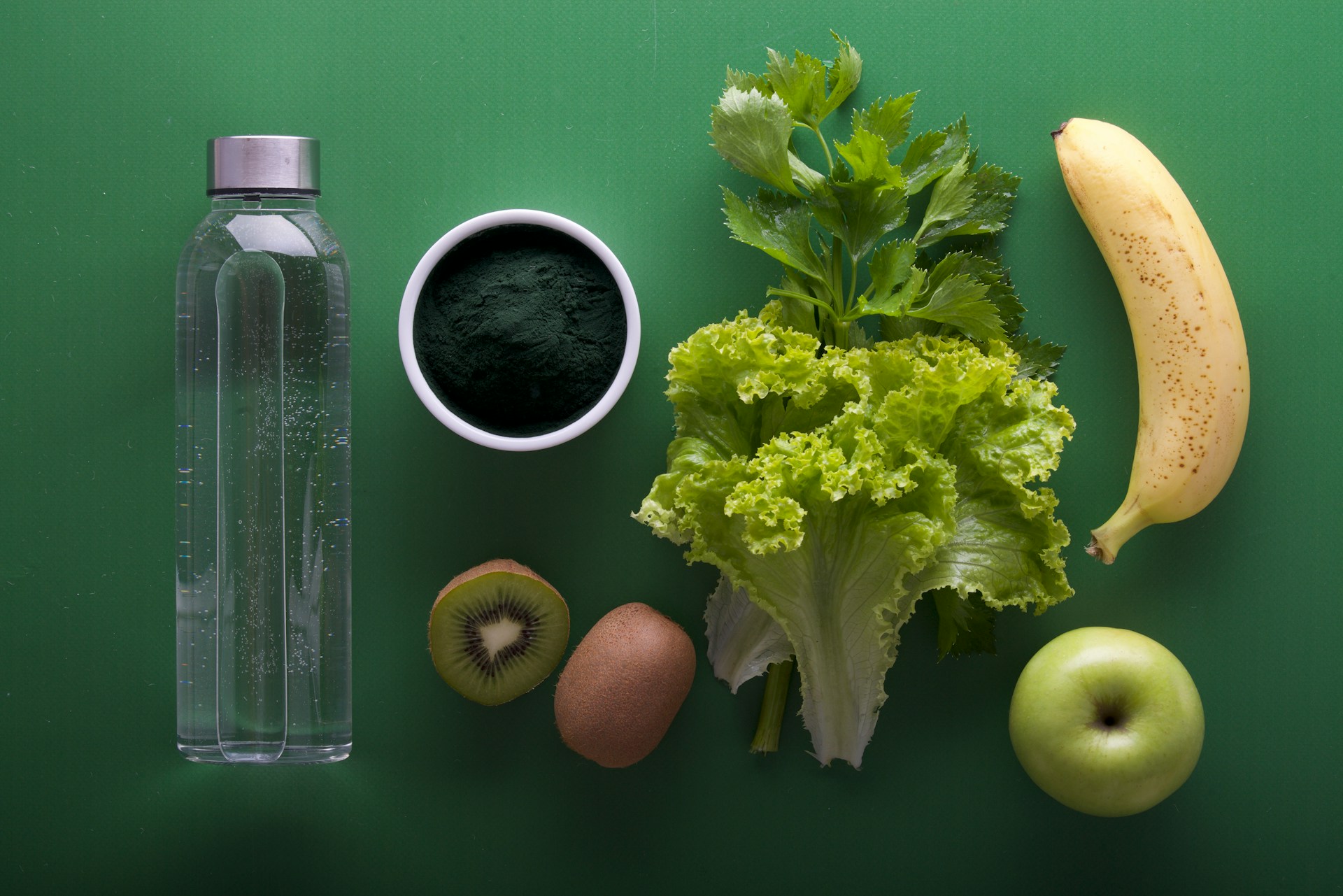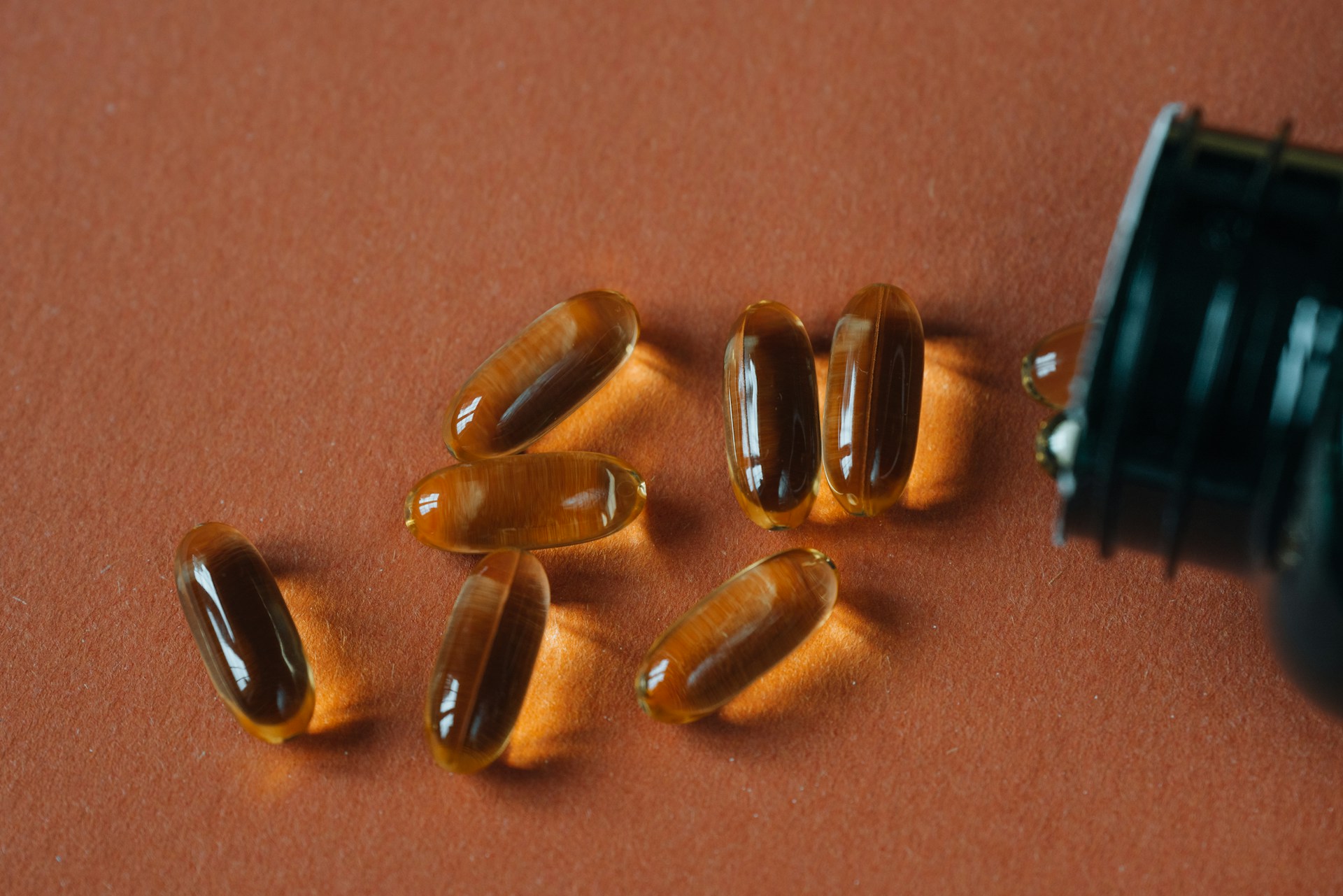Nutrition
Nutrition for Brain Health: Foods to Enhance Cognitive Function

As we gracefully age into our golden years, it’s essential to keep our minds sharp and our memories intact. One of the best ways to achieve this is by fueling our brains with the right nutrients. In this article, we’ll explore some of the best foods for cognitive function and how to incorporate them into our daily diets. So, grab your reading glasses, and let’s dive in!
1. Fatty Fish: A Sea of Benefits
When it comes to brain health, you can’t go wrong with fatty fish like salmon, mackerel, and sardines. These fish are rich in omega-3 fatty acids, which are essential for maintaining brain function. Omega-3s help build cell membranes, reduce inflammation, and promote new brain cell formation. Try grilling or baking your fish with some lemon and herbs for a tasty and brain-boosting meal.
2. Nuts and Seeds: Small but Mighty
Nuts and seeds may be small, but they pack a powerful punch when it comes to brain health. Walnuts, almonds, and flaxseeds are all excellent sources of omega-3 fatty acids, while sunflower seeds and hazelnuts contain vitamin E, which has been shown to protect the brain from oxidative stress. Sprinkle some nuts and seeds on your morning oatmeal or yogurt, or enjoy them as a crunchy afternoon snack.
3. Berries: The Colorful Brain Food
Who doesn’t love a handful of sweet, juicy berries? Not only are they a delicious treat, but they’re also great for your brain. Berries like blueberries, strawberries, and blackberries are rich in antioxidants, which help protect the brain from free radicals and inflammation. They also contain flavonoids, which have been shown to improve memory and cognitive function. Add some berries to your morning smoothie or enjoy them as a refreshing dessert.
4. Leafy Greens: Go Green for Brain Health
Leafy greens like spinach, kale, and collard greens are a must-have in any brain-healthy diet. These veggies are packed with vitamins and minerals like folate, vitamin K, and lutein, which have been shown to slow cognitive decline and improve memory. Try sautéing some greens with garlic and olive oil for a tasty side dish, or blend them into a green smoothie for a nutrient-packed breakfast.
5. Dark Chocolate: A Sweet Treat for the Mind
Good news for chocolate lovers – dark chocolate is actually good for your brain! Dark chocolate contains flavonoids, which can help improve blood flow to the brain and boost cognitive function. Just make sure to choose a high-quality dark chocolate with at least 70% cocoa content to reap the benefits. Enjoy a small square of dark chocolate as an after-dinner treat, or melt it and drizzle it over fresh fruit for a decadent dessert.
6. Whole Grains: The Foundation of a Brain-Healthy Diet
Whole grains like brown rice, quinoa, and whole wheat bread are the foundation of a brain-healthy diet. They’re rich in complex carbohydrates, which provide a steady source of energy for the brain, as well as fiber, which helps maintain stable blood sugar levels. Swap out white rice for brown rice or try a quinoa salad for a nutritious and brain-boosting meal.
By incorporating these brain-boosting foods into your daily diet, you’ll be well on your way to maintaining your cognitive function and enjoying a sharp mind well into your golden years. Remember, it’s never too late to start making healthier choices for your body and mind. So, let’s raise a glass (of antioxidant-rich green tea, of course) to a lifetime of brain health and happiness!

Nutrition
Urgent Alert: Major Recall on Popular Herbal Supplements Due to Undisclosed Drug Risks

People across the United States often take supplements to boost their health, but it’s crucial to remember that the U.S. Food and Drug Administration (FDA) does not give pre-market approval for dietary supplements. Consequently, if safety issues surface, they typically arise after consumers have already had the chance to purchase and use the products. Currently, this situation is unfolding as two separate supplements are being recalled due to undisclosed drug ingredients.
The FDA recently disclosed a company announcement regarding the first of these supplement recalls. The announcement, made on July 15, concerns a voluntary recall by SoloVital.com, a California-based company, of all batches of its Umary Acido Hialuronica (Hyaluronic Acid) supplements. This product, promoted and sold for pain relief, is distributed nationwide via the company’s online store.
“The recall was ordered after an FDA laboratory analysis confirmed that the Umary supplements were tainted with two hidden drug ingredients: diclofenac and omeprazole,” according to the recall notice.
“Products containing diclofenac and omeprazole cannot be marketed as dietary supplements.”
Diclofenac is a non-steroidal anti-inflammatory drug (NSAID). It can “cause increased risk of cardiovascular events, such as heart attack and stroke, as well as serious gastrointestinal damage, including bleeding, ulceration, and fatal perforation of the stomach and intestines,” warns the FDA. There may also be harmful interactions with other medications, particularly if consumers use multiple products containing NSAIDs.
On the other hand, omeprazole is a proton pump inhibitor (PPI) typically used to treat stomach acid-related disorders. However, it “may cause serious skin reactions, abdominal pain, diarrhea, nausea, and headache,” according to the FDA. This surreptitious ingredient can potentially camouflage stomach problems and may negatively interact with other medications.
SoloVital is currently contacting its customers via email to arrange product returns. In the meantime, consumers who have the affected Umary supplements are being strongly advised to cease usage and return them to their original place of purchase.
Yet, there’s a second supplement of concern that might be in your household. Following closely on the heels of the Umary recall, the FDA released another company announcement about another supplement recall on July 16. This one concerns the voluntary recall of some Infla-650 Herbal Dietary Supplement Capsules by Guru Inc., a Georgia-based company.
These Infla-650 Herbal supplements were also found to contain hidden diclofenac. In addition, they also included undisclosed acetaminophen and phenylbutazone. This poses a significant risk to consumers due to the danger of unintentional acetaminophen overdose, especially if consumers are also taking other products containing acetaminophen.
“Acetaminophen overdose can cause liver damage (hepatoxicity), ranging in severity from abnormalities in liver function to acute liver failure, and even death,” according to the recall notice. Furthermore, the presence of phenylbutazone, an NSAID previously discontinued for human use in the U.S., is concerning due to its risk of causing potentially fatal injuries, specifically bone marrow toxicity.
The recalled Infla-650 supplements, marketed as an herbal dietary supplement for pain relief, were distributed nationwide and sold online. Like SoloVital, Guru Inc. has initiated communication with its distributors and customers for product return. Consumers are urged to stop use and return any recalled Infla-650 supplements to their place of purchase.
Let us know what you think, please share your thoughts in the comments below.
Nutrition
Gastroenterologist’s Top 5 Foods for a Happier, Healthier Gut

The health of our gut is pivotal, playing a significant role in our overall wellbeing by processing food, absorbing necessary nutrients, and expelling toxins. As noted by internal medicine physician William W. Li, MD, “The more diverse your microbiome, the healthier your gut. This translates into lower inflammation and a reduced risk for chronic diseases like heart disease and type 2 diabetes. It can also promote faster healing, a more streamlined metabolism and even better mood.” So, what foods nurture the gut and boost its health? Here are five gut-friendly foods that gastroenterologist Joseph Salhab, DO, incorporates into his daily diet.
Sourdough Bread
Dr. Salhab, an avid baker, champions sourdough bread as a gut-friendly food. “For my gut-friendly breads, I love sourdough,” says Salhab. He explains that sourdough is “lower in gluten and other bloat-causing agents than other breads,” making it a healthier choice for your gut. The fermentation process of sourdough also leads to an increase in prebiotic and probiotic properties, which benefit the gut’s health, per a 2021 report in the journal, Microorganisms.
Kefir Cheese
After toasting a slice of his homemade sourdough bread, Salhab enjoys it with a thin spread of kefir cheese. This cheese is “naturally rich in probiotics,” which are great for gut health. Kefir, a fermented milk-like beverage, boasts several health benefits, including “anti-inflammatory, anti-oxidative, anti-cancer, anti-microbial, anti-diabetic, anti-hypertensive, and anti-hypercholesterolemic effects,” according to a study in the Foods journal.
Greek Yogurt
When he’s not enjoying his sourdough toast, Dr. Salhab starts his day with Greek yogurt as it is a food naturally high in probiotics. He garnishes it with blueberries and raspberries, which he says, “help my gut bacteria thrive and they help with memory and focus.”
Avocados
Dr. Salhab cherishes avocados, a food high in fiber and packed with essential nutrients. As per Johns Hopkins Medicine, avocados promote healthy digestive function due to their potassium content. Plus, avocados are a low-fructose food, which helps to reduce bloating.
Sliced Tomatoes
With his sourdough toast and smashed avocado, Salhab adds slices of tomatoes, a “great prebiotic.” As outlined by Best Life, prebiotics serve as food for the gut’s microflora, differing from probiotics as they remain in the gut. Tomatoes can also lower your risk of heart disease, cancer, and boost immunity, as per Cleveland Clinic.
After discussing these gut-friendly foods, it’s clear that maintaining a healthy gut contributes to our overall health and wellbeing. By incorporating nutritious and diverse foods like sourdough bread, kefir cheese, Greek yogurt, avocados, and tomatoes into your diet, you can support a healthier, more diverse microbiome. As Dr. Salhab demonstrates, these foods can be delicious and provide a variety of other benefits, ranging from improved memory to reduced risk of chronic diseases. So, why not consider including them in your meal plan to help your gut strive?
Let us know what you think, please share your thoughts in the comments below.
Nutrition
Unlock the Secret Perks of Echinacea From Immune Support to Skin Care

Introducing the multifaceted supplement that’s been revered for centuries for its potential health benefits: Echinacea. Once employed as a versatile medicinal herb to fight off diseases like scarlet fever and diphtheria, echinacea is now classified as a dietary supplement meant to enhance your overall well-being, not cure ailments. Many tout echinacea as a formidable immune booster, but the benefits don’t stop there. So, let’s delve into six surprising health benefits that echinacea supplements can provide.
Potential Anti-Inflammatory Properties
“Echinacea’s potential to reduce inflammation in the body is intriguing. It could help with minor skin irritation or sore throats by calming the body’s inflammatory response,” shares Raj Dasgupta, MD, a medical reviewer for NCOA. While research is underway to confirm the extent of these benefits, the initial anecdotal evidence is promising.
Speeding Up Wound Recovery
Echinacea isn’t just potentially beneficial internally, but externally as well. A 2023 study in the Molecules journal revealed echinacea’s antimicrobial and aseptic effects, which can aid in faster wound healing by warding off infections.
“It works by stimulating the immune system to send healing cells to the injured area,” explains Dasgupta. Nonetheless, he emphasizes that further research is needed and that echinacea should not substitute proper medical treatment for wounds.
Dermatological Effects
Your skin might love echinacea, too! A 2010 study identified echinacea purpurea as beneficial for protecting skin from oxidative stress and improving its hydration.
“Studies suggest it may be helpful for chronic conditions like eczema,” Dasgupta adds. Still, a call for more research to confirm this has been echoed.
Immune System Booster
Perhaps the most well-known potential benefit of echinacea is an immune system boost. Despite traditional use, Dasgupta urges caution, saying, “While traditionally used for colds, the evidence for its effectiveness is mixed. Some studies show a slight reduction in cold duration.”
Anxiety Alleviation
Could echinacea play a role in managing anxiety? A 2021 study found anti-anxiety and anti-depressant effects in subjects who took echinacea supplements for six weeks. Chris Mohr, PhD, RD, a fitness and nutrition advisor, explains, “It has potential anti-inflammatory properties, and chronic inflammation is linked to anxiety.” He does stress that it shouldn’t be used as a first-line anxiety treatment, however.
Regulating Blood Sugar Levels
There’s preliminary research suggesting that echinacea might assist blood sugar regulation, although this data is based on animal studies and has not been replicated in humans yet.
“If data do emerge to support the animal studies, this could be beneficial for those with prediabetes or those who need to manage blood sugar as part of a larger health plan,” proposes Mohr.
Echoing what might be the golden rule of dietary supplementation, our health journey is as unique as we are. What works for one may not work for all. So always be sure to consult with a healthcare provider, especially if you have chronic diseases or autoimmune conditions, before incorporating echinacea or any new supplement into your diet. From potentially reducing inflammation to possibly boosting your immune system, the old yet new echinacea might just be the versatile dietary supplement your health routine needs.
Let us know what you think, please share your thoughts in the comments below.
-

 Health10 months ago
Health10 months agoPreventing Falls and Injuries for Seniors
-

 Nutrition6 months ago
Nutrition6 months agoThe Aging Secret of Vitamin D Unveiled
-

 Nutrition10 months ago
Nutrition10 months ago5 AMAZING Dinner Recipes That Are Also HEALTHY
-

 Health2 months ago
Health2 months ago17-Second Neuropathy Solution
-

 Health1 month ago
Health1 month agoOncologist Reveals Top 5 Cancer Prevention Tips You Shouldn’t Ignore
-

 Lifestyle2 months ago
Lifestyle2 months agoSleep Soundly with These 11 Expert-Approved Bedtime Routines
-

 Health7 months ago
Health7 months agoDownsizing Tips: Simplifying Your Lifestyle
-

 Health5 months ago
Health5 months agoBoost Your Heart Health: Simple Tips for Seniors